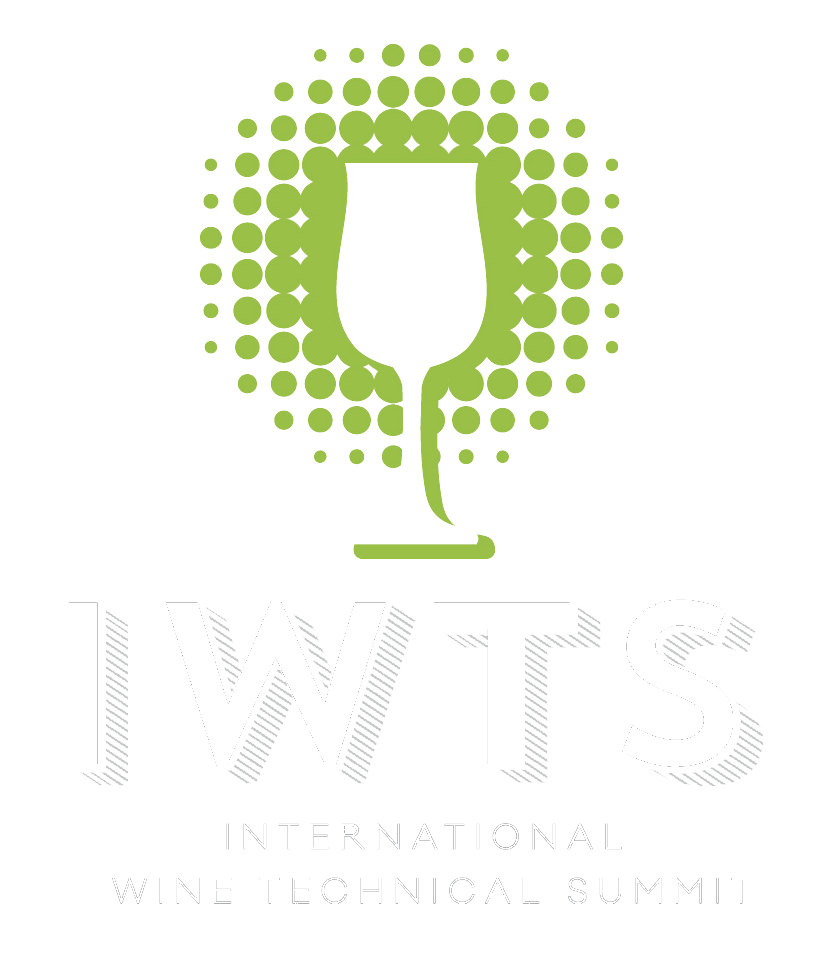2019 AGENDA
Photos
Location: Wente Vineyards 5050 Arroyo Road, Livermore, California 94550
MONDAY, JUNE 3, 2019
8:30 am – 9:00 am Registration
9:00 am – 9:05 am Welcome to the International Wine Technical Summit, Katherine Bedard, Wine Institute
9:05 am – 9:30 am Opening Remarks, Karl D. Wente, Wente Vineyards and Mari Kirrane, U.S. Alcohol and Tobacco Tax and Trade Bureau (TTB)
9:30 am – 10:00 am Introductions
1. Delegation Introductions
2. Spotlight on first time IWTS Delegates:
3. Regulatory Updates from Participants (optional)
10:00 am – 10:30am Session 1. Introduction to the World Wine Trade Group’s Good Regulatory Principles for Wine, Greg Hodson, E. & J. Gallo Winery. Examples of the principles in action: https://www.wwtg-gmcv.org/action
10:30 am – 11:00 am Coffee Break
11:00 am – 12:00 pm Session 2. “Harmonizing Expression of Measurement Results in Wine Analysis: Best Practices When Testing and Reporting Sugar in Wine”—presented at the OIV 41st World Congress of Vine and Wine and based on IWTS work.
Presentation by Eric Wilkes, Australian Wine Research Institute
Group Discussion:
How is sugar in wine defined in your economy?
In general is the practice in your economy to define regulatory limits by an actual analyte, or by a chemical testing methodology? eg, in the case of sugar is the limit defined by the amount of glucose and fructose or is it as the amount measured using a reducing sugar test?”
12:00 pm – 1:00 pm Lunch
1:00 pm – 2:15 pm Session 3. Relative vs. Absolute Risk—Dr. Samir Zakhari, Distilled Spirits Council of the United States and Tim Ryan, E. & J. Gallo Winery.
Presentation by Dr. Samir Zakhari
Group Discussion of the article: https://medicalxpress.com/news/2019-04-breakfast-cardiovascular-death.html
What do you think of the study?
What are the next steps for government based on the information in the study?
What are the next steps for industry based on the information in the study?
2:15 pm – 3:15 pm Session 4. Certificates of Analysis and “Authenticity, Safety, and Quality”—Paul Huckaba, Bronco Wine Company. Based on the following papers authored by FIVS:
Certificates of Analysis and Authenticity
Certificates of Analysis and Safety
Group Discussion:
What is the primary purpose for the Certificates of Analysis tests (if any) that your economy requires?
What is the process for revising Certificates of Analysis requirements in your economy?
How many export Certificates of Analysis do you review each year, and what are the costs, such as staff time, associated to your economy?
3:15 pm – 5:20 pm Presentation and Tour of Wente Vineyards. Focus on IWTS themes by Alexandra Ball, Wente Vineyards
5:30 pm – 7:00 pm Evening Reception. Concannon Vineyard
TUESDAY, JUNE 4, 2019
8:45 am – 9:15 am Session 5. Overview of FIVS-Abridge database of wine regulations and work plan—Laurel Parker, FIVS-Abridge
9:15 am – 10:00 am Session 6. Residue Limits in Wine—Patricio Parra, R&D Consortium Wines of Chile
Group Discussion:
On what basis do your countries define MRLs for wine grapes? Is there a periodic review process of these limits?
Do you know of other research on the transfer of plant protection substances (i.e. pesticides, herbicides, etc.) to wine? What is the best way to share updated information about this issue?
How can research help to define instructions on the use of pesticides in a better way?
10:00 am – 10:30 am Coffee Break
10:30 am – 11:45 pm Session 7. Interwinery Ring Test—Eric Wilkes, AWRI
Group Discussion:
What other mechanisms would delegates like to use besides the Ring Test?
What more can the program do to increase participation?
11:45 am – 12:30 pm Session 8. Overview of Emerging Food Safety Systems—Rachel Triggs, Wine Australia
Group Discussion:
Does your country conduct risk assessments before implementing certification and/or testing regimes for imported foods? If so, does your country recognize wine as a low-risk product?
Have any imported wines been rejected in your market in the past 12 months/ 5 years?
If so were they rejected for reasons of safety, quality or authenticity? Or were they rejected merely for non-compliance with an administrative requirement? (e.g. mistakes on import documentation) Does your country apply alternative import arrangements to products from authorized economic operators/trusted traders?
12:30 pm – 1:30 pm Lunch
1:30 pm – 3:00 pm Session 9. Permitted Uses for Water in Wine and Winemaking. Moderator: Gordon Burns, ETS Laboratories. Panelists: Rachel Triggs, Wine Australia. Carlos Tizio INV. Mari Kirrane, TTB. Tim Ryan, E. & J. Gallo.
Information from INV: Presentation. Water in winemaking and tables
3:00 pm – 3:15 pm Session 10. Codex Update—Mari Kirrane, TTB
3:15 pm – 3:45 pm Coffee Break
3:45 pm – 5:00 pm Session 11. Meeting Wrap Up, Responses to Winemaking Questions, Solicitation of Future Discussion Topics

